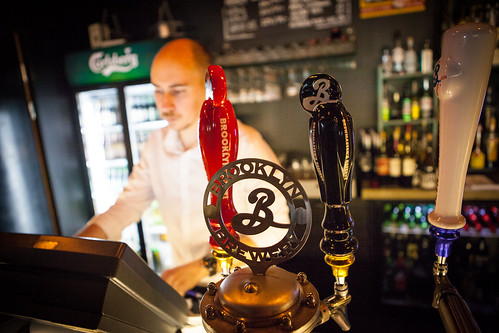Foxfinder (Ambassadors Theatre)
Verdict: Unintentionally hilarious★★✩✩✩

Heathers (Theatre Royal Haymarket)
Verdict: Deafening★★★✩✩
Collectors of dramatic kitsch should hurry to the Ambassadors for an unintentionally comic tale set in rural bleakness.
Playwright Dawn King fancies herself as an expert in dystopia, a fancy word for Leftie pessimism.
The programme even includes ‘Dawn's tips for writing dystopia'.
Her story is set in an England where farmers have their output checked by State officials. Those who fail to grow enough food for this presumably post-Brexit Britain may have their farms given to more skilful agriculturalists who can produce the supplies needed by a starving populace.
In this world, the fox has become an enemy of the people, so feared that it has assumed quasi-devilish standing.
Iwan Rheon as Inspector William, a trained foxfinder reared to the role by state supervisors
The play opens with farmer Samuel and his wife Judith in their bare kitchen. Dark lighting.
Rudimentary furniture. Ambient scary chords. And ooh-arr yokel accents which would not pass muster on The Archers.
William, 19, a trained foxfinder, reared to the role by State supervisors since he was five, arrives to inspect the farm for signs of the hated vermin.
As the story unfolds, the allegory whacks us over the head time and again: here is a brutal, desperate State whose citizens live in terror; the little people have never had it harder; and foxes, which do not even seem to exist, are the enemy.
Oh yes.
What prize tommyrot. I happen to live in a rural area. Round our way, farmers hold officialdom in cheery contempt. Foxes? The State loves them. Ditto badgers.
Iwan Rheon brings a robotic emptiness to William, the foxfinder.
Paul Nicholls, Heida Reed and Bryony Hannah play the rustics.
At Wednesday's final matinee a few lines went wrong and others were hard to hear.
Good set, though, with woodland backdrops and an onstage tree.
The production is like a cross between Orwell and the Two Ronnies sketch fest nyc about The Phantom Raspberry Blower Of Old London Town.
Throw in some stuffed dead rabbits and clunky sound effects (heavy rain that stops at the press of a button) and — whooo!
— it's dystopia.
We were meant to be terrified. But I thought it a hoot.
- Stage adaptations of cult films attract cultist audiences who whoop and cheer.
So it proved on Tuesday at the Theatre Royal Haymarket, where a high number of forty-something women screamed their delight at Heathers.
Winona Ryder starred in the 1988 film, a dark satire on American high school life.
Heroine Veronica is a reluctant member of a gang of teenage school bullies.
After bedding a handsome outsider called JD, she turns into a murderer.
Veronica and JD are soon picking off the baddies, be it by poisoning them or shooting them. Such larks!
In the stage version this not-so-cute story has been set to rock-pop; the music painfully loud, the tunes humdrum.
Carrie Hope Fletcher, as Veronica, looks at least ten years too old.
I was more taken by Jamie Muscato's JD, who achieves a chiselled coolness.
The best moment comes with My Dead Gay Son, when a double funeral is turned into a hammy hymn to tolerance.
There is also much about teenage suicides.
If you have lost someone to suicide, you might want to give this a miss.
QUENTIN LETTS
Haunting fable of family grief
Primed by my wife, who sobbed her way through Alice Sebold's bestselling book, I was expecting this play to be a real sniffle-fest.
In the event, the beauty of Bryony Lavery's spellbinding adaptation and Melly Still's eloquent staging of the story about a teenage girl who's been raped and murdered is that it doesn't simply make you mist up.
Instead, it welcomes you into its world as a tale of longing, redemption and eventual letting go.
Lavery's version is a river of eddying currents taken from Sebold's story, starting with the murder of narrator Susie Salmon and moving steadily to the open sea of the ending.
It's highly cinematic, with short scenes in heaven and on earth interpenetrating as the dead Susie tries to help her family while they blunder through their grief.
But it works brilliantly on stage because Sebold's characters are fully embodied and the audience less imprisoned by Susie's narration.
There are poignant performances from Jack Sandle as the father struggling to cope with his confusion and Emily Bevan as the mother who isolates herself emotionally, while Ayoola Smart proves herself a rising star as the gutsy sister.
But it's Charlotte Beaumont who focuses the show as Susie, finding the active joy in a potentially passive victim.
Perhaps she could have held the closing lines a little longer, but they do stay with you, and if I didn't well up then, I'm not so sure now.
PATRICK MARMION
댓글 0
| 번호 | 제목 | 글쓴이 | 날짜 | 조회 수 |
|---|---|---|---|---|
| 7 | Internet World Is Enough To Help You Find Weather News Today | HubertOCallaghan3253 | 2022.07.13 | 0 |
| 6 | Why Are Personal Weather Stations Gaining Popularity | RickyMetzger53162 | 2022.06.25 | 0 |
| 5 | COBB'S COMEDY SHOWCASE | EarnestKlass121570 | 2022.05.11 | 3 |
| 4 | FRANKIE QUINONES | ConcettaStrickland | 2022.05.10 | 1 |
| 3 | COBB'S COMEDY SHOWCASE | Aleisha05879853226865 | 2022.05.09 | 2 |
| » | QUENTIN LETTS Reviews Foxfinder At The Ambassadors Theatre | LucyWeber73339800 | 2022.05.07 | 1 |
| 1 | Alec Baldwin Mocks Trumps First Year In Office In Hilarious 'memoir' | SebastianMello17572 | 2022.05.03 | 1 |
